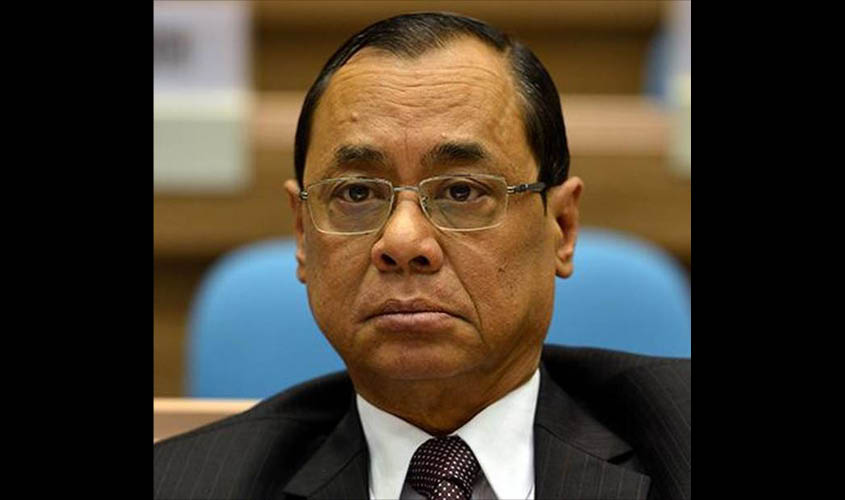Many sensitive cases like Ayodhya dispute, NRC and constitutionality of Article 35A are scheduled to come up before him.
Newly appointed Chief Justice of India (CJI), Ranjan Gogoi faces the uphill task of bringing down the huge pendency of cases—more than 3 crore across the country and 57,800 cases in the Supreme Court—during his stint. Besides, he also faces the challenge of filling judicial vacancies and resolving differences with the government on finalising the memorandum of procedure for appointing judges.
Many politically sensitive cases like the Ram Janmabhoomi-Babri Masjid dispute, the National Register for Citizens (NRC) of his home state Assam and the petition challenging the constitutionality of Article 35A giving special status to Jammu and Kashmir are scheduled to come up before him.
Justice Gogoi, who was sworn in as the 46th CJI this week, will have a 13-month tenure. He is said to be a no-nonsense man of few words, strong and deep conviction, and a man of action. He has been known for speaking his mind.
At a lecture, he had said “independent journalists and sometimes noisy judges should be democracy’s first line of defence.”
His name was formally recommended by his predecessor Justice Dipak Misra, who retired on Tuesday. Justice Gogoi is the first Chief Justice from the Northeast. Incidentally, he was one of the four senior-most judges who had organised the unprecedented press conference on 12 January this year.
Among other cases, Justice Gogoi is hearing the controversial Assam NRC case. His significant judgments include setting up of special courts to exclusively try sitting MPs and MLAs and appointment of anti-corruption ombudsman Lokpal.
He had also led the SC Bench which had agreed to hear the CBI’s appeal against Allahabad High Court’s acquittal of Rajesh and Nupur Talwar in the infamous Aarushi murder case.
Last year, he was part of the Bench which took the action of jailing sitting High Court judge C.S. Karnan for contempt.
Soon after taking over as the CJI, Justice Gogoi made it clear that the practice of “mentioning” would be done away with and should be exercised only in exceptional cases. This, according to lawyers, will help solve the issue of backlog cases. “Mentioning” is an unwritten practice wherein the litigant prays to the court to take up his matter before the date assigned because of an urgency. However, this practice is currently being “misused” by many and therefore “genuine” cases are pending.
The new subject-wise roster, introduced by the CJI, as the master of roster is a continuation of his predecessor’s legacy of keeping a tight grip on PILs.
The CJI’s court is dominantly in charge of fresh PIL petitions. But he has made a slight change. Now certain PIL petitions allocated by the CJI can go to the next senior-most SC judge, Justice Madan B. Lokur.
Justice Gogoi is the son
After that, he pursued a PG degree in law from Delhi University and returned to Guwahati in 1978 and started practising in the High Court there on constitutional, taxation and company matters.
In 2001, he was appointed as Permanent Judge of the High Court. He was also transferred to Punjab and Haryana High Court, where he became the Chief Justice. He came to Supreme Court in April 2012.

